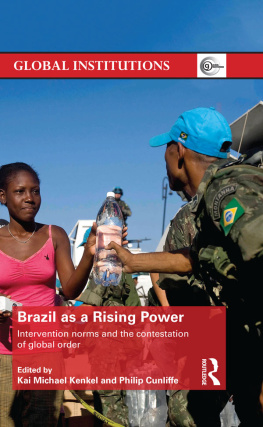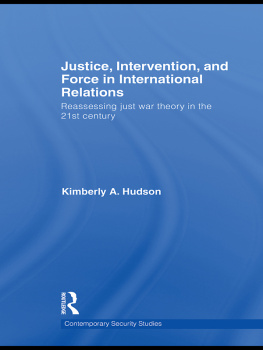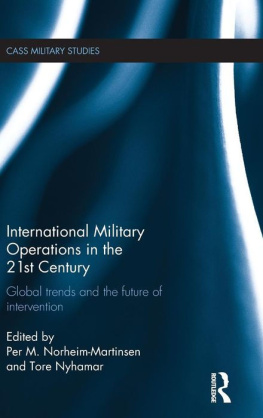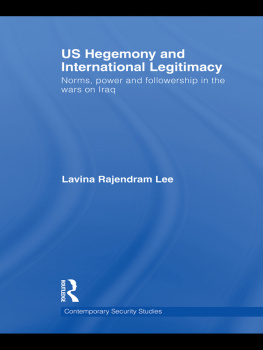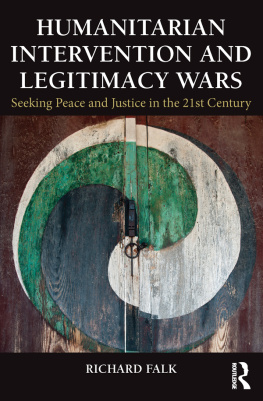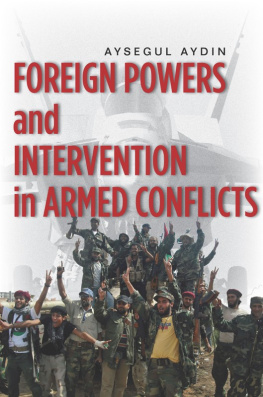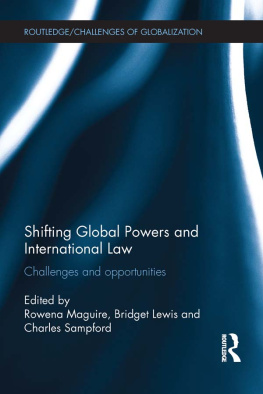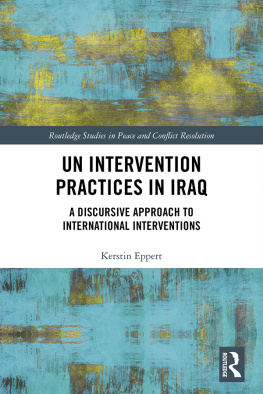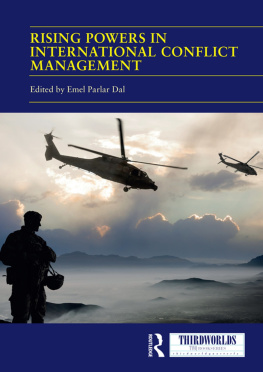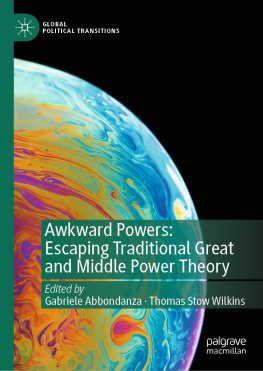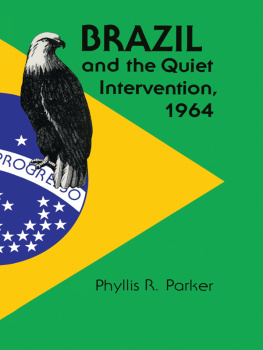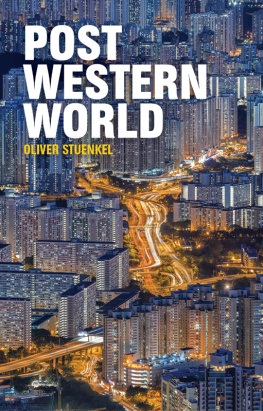Brazil as a Rising Power
This book examines the normative tensions inherent in upward mobility within the international system, focusing particularly on the clash between sovereign self-interest and the putatively universal norms associated with international interventions. It provides extensive detail and deep analysis of Brazils nature as a rising power, and the implications for how the country crafts its international profile on issues such as intervention. In addition, the book proposes innovative ways of (re)organizing thematic, conceptual, and empirical research on the normative behavior of emergent powers with regard to institutions of global governance and questions of intervention.
In analyzing what distinguishes Brazil as a rising power, the contributors begin from the assumption that participation in intervention is increasingly important in demonstrating its capacity on the international stage. As such, the debates around intervention highlight the clash of norms that accompanies emergence as a global player. The books approach is to organize the analysis around thematic rather than chronological lines, using the Brazilian case as an illustrative example of other emerging powers such as Turkey, India, and others.
This work draws together rich empirical detail with sophisticated and varied conceptual analysis and will be of interest to scholars of international relations, Latin-American politics, and global governance.
Kai Michael Kenkel is on the faculty at the Institute of International Relations at the Pontifical Catholic University of Rio de Janeiro (IRI/ PUC-Rio).
Philip Cunliffe is a Senior Lecturer in International Conflict at the University of Kent, UK.
Global Institutions
Edited by Thomas G. Weiss
The CUNY Graduate Center, New York, USA and Rorden Wilkinson
University of Sussex, Brighton, UK
About the series
The Global Institutions Series provides cutting-edge books about many aspects of what we know as global governance. It emerges from our shared frustrations with the state of available knowledgeelectronic and print-wise, for research and teachingin the area. The series is designed as a resource for those interested in exploring issues of international organization and global governance. And since the first volumes appeared in 2005, we have taken significant strides toward filling conceptual gaps.
The series consists of three related streams distinguished by their blue, red, and green covers. The blue volumes, comprising the majority of the books in the series, provide user-friendly and short (usually no more than 50,000 words) but authoritative guides to major global and regional organizations, as well as key issues in the global governance of security, the environment, human rights, poverty, and humanitarian action among others. The books with red covers are designed to present original research and serve as extended and more specialized treatments of issues pertinent for advancing understanding about global governance. And the volumes with green coversthe most recent departure in the seriesare comprehensive and accessible accounts of the major theoretical approaches to global governance and international organization.
The books in each of the streams are written by experts in the field, ranging from the most senior and respected authors to first-rate scholars at the beginning of their careers. In combination, the three components of the seriesblue, red, and greenserve as key resources for faculty, students, and practitioners alike. The works in the blue and green streams have value as core and complementary readings in courses on, among other things, international organization, global governance, international law, international relations, and international political economy; the red volumes allow further reflection and investigation in these and related areas.
The books in the series also provide a segue to the foundation volume that offers the most comprehensive textbook treatment available dealing with all the major issues, approaches, institutions, and actors in contemporary global governanceour edited work Interna-tional Organization and Global Governance (2014)a volume to which many of the authors in the series have contributed essays.
Understanding global governancepast, present, and futureis far from a finished journey. The books in this series nonetheless represent significant steps toward a better way of conceiving contemporary problems and issues as well as, hopefully, doing something to improve world order. We value the feedback from our readers and their role in helping shape the on-going development of the series.
A complete list of titles appears at the end of this book. The most recent titles in the series are:
Brazil as a Rising Power (2016)
edited by Kai Michael Kenkel and Philip Cunliffe
Summits and Regional Governance (2015)
edited by Gordon Mace, Jean-Philippe Thrien, Diana Tussie, and Olivier Dabne
Global Consumer Organizations (2015)
by Karsten Ronit
World Trade Organization (2nd edition, 2015)
by Bernard M. Hoekman and Petros C. Mavroidis
Women and Girls Rising (2015)
by Ellen Chesler and Terry McGovern
The North Atlantic Treaty Organization (2nd edition, 2015)
by Julian Lindley-French
Governing Climate Change (2nd edition, 2015)
by Harriet Bulkeley and Peter Newell
First published 2016
by Routledge
2 Park Square, Milton Park, Abingdon, Oxon OX14 4RN
and by Routledge
711 Third Avenue, New York, NY 10017
Routledge is an imprint of the Taylor & Francis Group, an informa business
2016 selection and editorial material, Kai Michael Kenkel and Philip Cunliffe; individual chapters, the contributors
The right of Kai Michael Kenkel and Philip Cunliffe to be identified as author of the editorial material, and of the individual authors as authors of their contributions, has been asserted by them in accordance with sections 77 and 78 of the Copyright, Designs and Patents Act 1988.
All rights reserved. No part of this book may be reprinted or reproduced or utilised in any form or by any electronic, mechanical, or other means, now known or hereafter invented, including photocopying and recording, or in any information storage or retrieval system, without permission in writing from the publishers.
Trademark notice: Product or corporate names may be trademarks or registered trademarks, and are used only for identification and explanation without intent to infringe.
British Library Cataloguing in Publication Data
A catalogue record for this book is available from the British Library
Library of Congress Cataloging in Publication Data
Names: Karlsrud, John, author.
Title: Norm change in international relations : linked ecologies in
UN peacekeeping operations / John Karlsrud.
Description: Milton Park, Abingdon, Oxon ; New York, NY :
Routledge, 2016. |
Includes bibliographical references and index.
Identifiers: LCCN 2015028344| ISBN 9781138942707 (hardback)
| ISBN 9781315672984 (ebook)
Subjects: LCSH: United NationsPeacekeeping forces. |
Peacekeeping forces. | International relationsPhilosophy. |
International relationsSocial aspects.
Classification: LCC JZ6374 .K37 2016 | DDC 341.5/84dc23
LC record available at http://lccn.loc.gov/2015028344
ISBN: 978-1-138-94678-1 (hbk)
ISBN: 978-1-315-67060-7 (ebk)
Aos alunos, colegas e funcionrios do IRI, que tanto me ensinaram sobre o Brasil.

